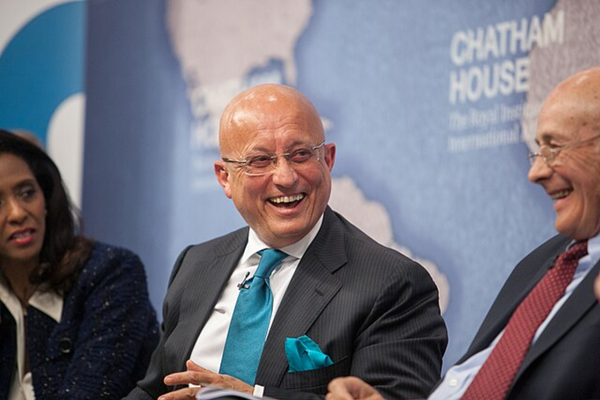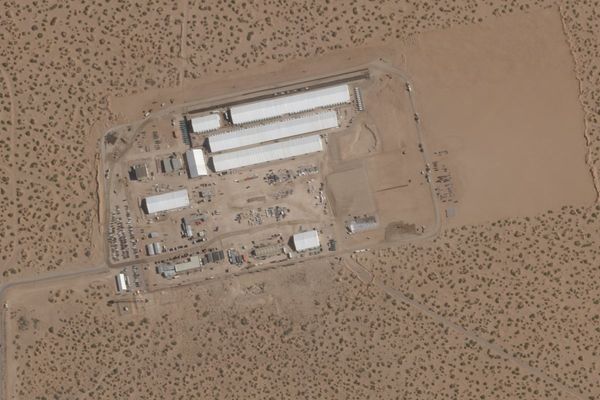
Forcing traders with electric vehicles to pay Congestion Charge fees from December will be "counterproductive" in encouraging Londoners to stop using diesel and petrol motors, a senior London Assembly Member has warned.
Elly Baker, Labour's spokesperson for Transport in City Hall, said Transport for London's (TfL's) plans to remove the Cleaner Vehicle Discount (CVD) from electric vans and other vehicles used by small businesses would create a barrier for them to make the green switch.
TfL is currently consulting on proposals which would see the 100% CVD end on Christmas Day this year - instead giving electric cars a 25% discount, and heavier electric vehicles a 50% reduction.
The fee for driving within the Congestion Charge Zone (CCZ) is also set to rise from £15 to £18, according to the proposals, meaning traders with electric vans would need to pay a £9 fee every time they venture into central London.
In a letter to TfL seen by the Local Democracy Reporting Service (LDRS), Ms Baker said that businesses "will use the Congestion Charge zone whatever the level of charge" and that plans to slash the discount in half would see small businesses returning to petrol or diesel vehicles due to "economic pressures".
She added: "Businesses need deliveries, as do hospitals and schools. Small businesses such as electricians and plumbers still need to enter the Congestion Charge zone to work.
"Therefore, we want these vehicles to be electric and retaining the 100% CVD will encourage more businesses to make the switch and avoid existing small businesses considering returning to petrol or diesel vehicles on a cost basis."
Ms Baker also raised the issue of the reduced discount affecting car clubs which host electric vehicles, saying they should be treated differently from private electric cars.
"The Labour Group are clear that car clubs are a key tool to reduce need for car ownership and as a result, reduce car journeys," she wrote to TfL.
"CCZ and CVD policies should therefore recognise and support car clubs as a tool overall to reduce unnecessary journeys and support a transition to cleaner vehicles. Currently the proposals do not do this and risk making car club operations more difficult at a time when we should be supporting their growth.
"Making car clubs more attractive for Londoners by ensuring the cost of access to electric vehicles does not become prohibitive, could help persuade many Londoners to give up their polluting vehicles in exchange for being part of a car club."
Ms Baker, who also chairs the London Assembly Transport Committee, told the LDRS: "We need to keep Londoners and our small businesses investing in going green while continuing to manage congestion.
"Keeping the full discount for electric vans, SMEs and car clubs will protect the progress we've made on cleaner vehicles, while keeping our economy and communities moving. If we want Londoners to switch to cleaner vehicles, we should be making it easier, not harder."
TfL say the increasing number of electric vehicles on London's roads "means a continued 100% discount would lead to worsening traffic and congestion" in the capital.
They also say the decision to change the current CVD was announced in December 2018, giving drivers seven years' advanced notice.
The City Hall Conservatives' Environment spokesman Thomas Turrell said: "Sadiq Khan is pulling the rug from under the feet of the electric vehicles market. Forcing electric vehicles to pay the Congestion Charge removes incentives from drivers and businesses from switching to greener vehicles."
The changes are expected to raise an additional £40million in the first year.
A TfL spokesperson said: "The Congestion Charge has been in place since its introduction in 2003 to manage traffic and congestion in the central one per cent of London during the busiest times of day.
"Without the changes proposed in our consultation, the charge would become less effective, with an estimated additional 2,200 vehicles in the zone on an average weekday.
"Under these proposals, we are also proposing a new Cleaner Vehicle Discount for those who do need to drive in the zone so they would still be able to benefit from a discount if they drive an electric vehicle, with a greater reduction for journeys that are harder to switch to walking, cycling and public transport, such as those made by vans for commercial purposes.
"Central London is one of the best-connected places in the world with high-quality sustainable transport options."







